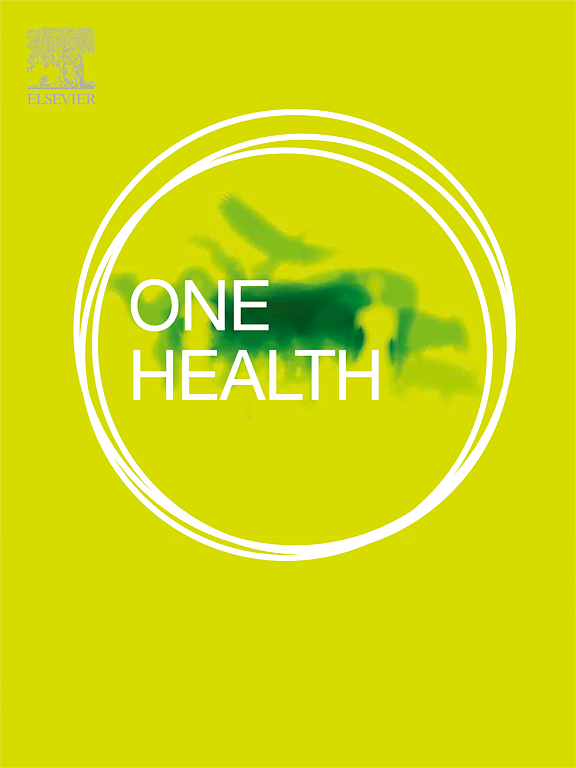在刚果民主共和国东部脆弱冲突地区暴发麻疹疫情期间促进风险沟通和社区参与
IF 4.1
2区 医学
Q1 INFECTIOUS DISEASES
引用次数: 0
摘要
刚果民主共和国于2022年12月宣布全国暴发猴痘疫情,并于2023年2月实施了事件管理系统。截至2024年5月26日,刚果民主共和国已记录了7851例麻疹病例,其中384例死亡。该省的确诊病例数量一直在增加。在所有病例中,有117例(36%)是生活在北基伍省和南基伍省境内流离失所者营地的个人。这些省份目前被认为是疫情的疫源地。刚果民主共和国东部普遍存在高度不安全、对政府和外国行为体的不信任以及持续的暴力,这一疫情带来的挑战导致社区普遍抵制可能挽救生命的干预措施。武装冲突与公共卫生之间的复杂关系突出表明,需要采取“同一个健康”方针,以应对受冲突影响地区的短期和长期卫生挑战。武装冲突往往扰乱卫生保健系统,使人们难以获得诊断、治疗和预防服务,从而导致疾病传播增加和严重后果。有效的风险沟通和社区参与战略是解决冲突地区人民的这些具体需求和提高他们对卫生干预措施的接受程度的基础。纳入RCCE的“同一个健康”方针将使社区能够管理风险、确定疫情并避免感染动物,从而提高社区对公共卫生干预措施的接受程度。在刚果民主共和国脆弱的战区,就维护和培养对政府的信任而言,传达与麻疹有关的紧急关切令人担忧。本文旨在强调地方和全球公共卫生界迫切需要采取干预措施,共同努力制定更强有力的政策和长期计划,优先建立有弹性的卫生保健系统,鼓励风险沟通,并让社区参与,以抗击刚果民主共和国东部脆弱冲突地区的麻疹疫情。本文章由计算机程序翻译,如有差异,请以英文原文为准。
Promoting risk communication and community engagement during Mpox outbreak in fragile conflict zones of Eastern DRC
The Democratic Republic of the Congo (DRC) declared a national outbreak of monkeypox (Mpox) in December 2022, and in February 2023, an incident management system was implemented. As of May 26, 2024, the DRC had recorded 7851 cases of Mpox, with 384 fatalities. The number of confirmed cases in the province has been increasing. Of all cases, 117 (36 %) were individuals living in camps for Internally Displaced People (IDP) in North and South Kivu provinces. These provinces are currently considered as foci of the outbreak.
The challenges of this outbreak in Eastern DRC, where there exist high levels of general insecurity, distrust of government and foreign actors, and ongoing violence, have contributed to widespread community resistance to potentially lifesaving interventions. The complex relationship between armed conflict and public health highlights the need for a One Health approach to address both short-term and long-term health challenges in conflict-affected regions. Armed conflict often disrupts healthcare systems, making it difficult for people to access diagnosis, treatment, and prevention services, thus leading to increased disease transmission and severe outcomes. An effective Risk Communication and Community Engagement (RCCE) strategy is the bedrock to addressing these specific needs of people in conflict zones and improving their acceptability of health interventions. A One Health approach integrating RCCE would empower communities to manage risks, identify outbreaks and avoid infected animals, improving community acceptability to public health interventions. In the delicate war zones of the DRC, conveying emergency concerns related to Mpox is a worry in terms of preserving and fostering trust in the government. This paper seeks to highlight the need for urgent intervention by the local and global public health communities to work together to put stronger policies and long-term plans into place that prioritize building a resilient healthcare system, encouraging risk communication, and engaging the community in order to combat the Mpox outbreak in the Eastern DRC fragile conflict zones.
求助全文
通过发布文献求助,成功后即可免费获取论文全文。
去求助
来源期刊

One Health
Medicine-Infectious Diseases
CiteScore
8.10
自引率
4.00%
发文量
95
审稿时长
18 weeks
期刊介绍:
One Health - a Gold Open Access journal.
The mission of One Health is to provide a platform for rapid communication of high quality scientific knowledge on inter- and intra-species pathogen transmission, bringing together leading experts in virology, bacteriology, parasitology, mycology, vectors and vector-borne diseases, tropical health, veterinary sciences, pathology, immunology, food safety, mathematical modelling, epidemiology, public health research and emergency preparedness. As a Gold Open Access journal, a fee is payable on acceptance of the paper. Please see the Guide for Authors for more information.
Submissions to the following categories are welcome:
Virology,
Bacteriology,
Parasitology,
Mycology,
Vectors and vector-borne diseases,
Co-infections and co-morbidities,
Disease spatial surveillance,
Modelling,
Tropical Health,
Discovery,
Ecosystem Health,
Public Health.
 求助内容:
求助内容: 应助结果提醒方式:
应助结果提醒方式:


